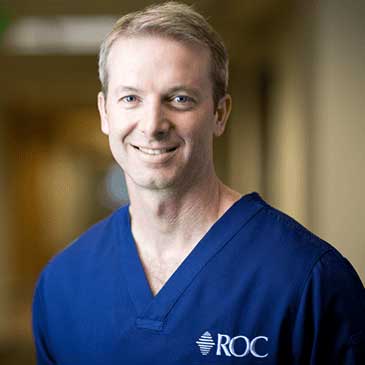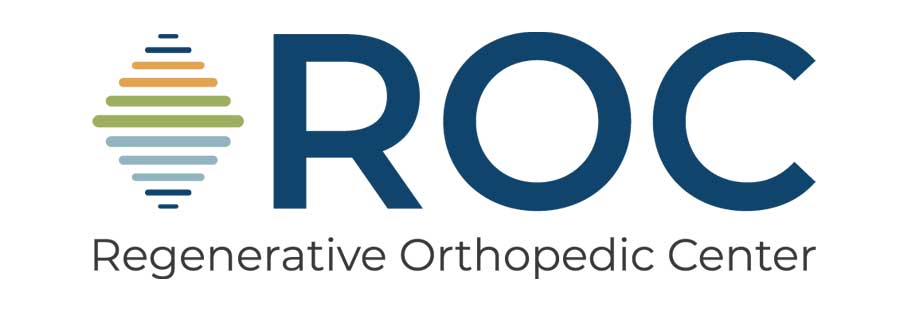ROC
Providing Comprehensive Orthopedic Shoulder Care
If shoulder pain is making daily tasks difficult, an orthopedic specialist with knowledge and experience in shoulder pain can diagnose and provide conservative approaches from physical therapy, injections, and lifestyle modifications to surgical interventions such as shoulder replacement or arthroscopy.
ROC
Answers to Shoulder Pain & Treatment Questions
What causes shoulder pain?
Shoulder pain may develop from an injury or disease that affects one or more of the components that make up your shoulder joint.
Common reasons for shoulder pain include:
Rotator cuff tear
A partial or complete tear of one or more of the tendons that make up your rotator cuff may cause shoulder pain.
Arthritis
Like other joints in your body, your shoulder pain may be arthritis. Types of arthritis that affect the shoulder include osteoarthritis and rheumatoid arthritis.
Fracture
Your shoulder joint has three bones, including the humerus, clavicle, and shoulder blade. A break in one of these bones may cause shoulder discomfort.
Tendonitis or Bursitis
Tendonitis and bursitis are inflammatory conditions that may affect the tendons or bursae in your shoulder.
Instability
Instability of the shoulder occurs when the head of the humerus partially or fully dislocates from the socket joint in the shoulder.
Impingement
Impingement is a type of shoulder pain that develops when the top of the shoulder blade rubs up against the underlying soft tissue.
Adhesive Capsulitis (Frozen Shoulder)
Adhesive capsulitis affects the shoulder capsule, causing it to thicken and stiffen.
Biceps Rupture
A bicep tendon rupture at the shoulder may cause shoulder pain.
Thoracic Outlet Syndrome
The thoracic outlet is the space between your clavicle and first rib. Thoracic outlet syndrome occurs from compression or irritation of the blood vessels or nerves in this space.
How is shoulder pain diagnosed?
The team at ROC conducts thorough exams to diagnose the underlying cause of your shoulder pain. They first review your symptoms, including the type of pain you feel, when it started, and activities that make it worse.
Your orthopedic surgeon examines your shoulder, assessing strength, mobility, and flexibility. They may request diagnostic imaging to confirm or rule out a diagnosis.
Though they might provide a diagnosis based on symptoms and imaging tests, in some cases, the orthopedic surgeons may conduct a diagnostic arthroscopy to diagnose the root cause of your shoulder pain.
How is shoulder pain treated?
ROC creates individualized treatment plans for shoulder pain based on the underlying cause. When possible, they take a non-surgical approach which may include:
- Rest
- Activity modification
- Physical therapy
- Bracing or casting
- Nonsteroidal anti-inflammatory drugs (NSAIDs)
- Steroid injections
- Platelet-rich plasma (PRP) injections
In some cases, the orthopedic surgeons recommend surgery to treat your shoulder problem. They use minimally invasive techniques when possible to limit tissue damage and speed up your recovery.
Learn More About Our Shoulder Care Experts
Our board-certified orthopedic surgeons and certified physician associates are dedicated to helping patients of all ages and activity levels regain mobility and achieve personal milestones.
Featured Shoulder Surgeons

David Huberty, M.D.
Shoulder, Upper Extremity Injuries and Sports Medicine

Nathan Orvets, M.D.
Elbow and Shoulder Surgery, Upper Extremity Injuries, and Sports Medicine

Brian Puskas, M.D.
Shoulder, Upper Extremity Injuries and Sports Medicine


